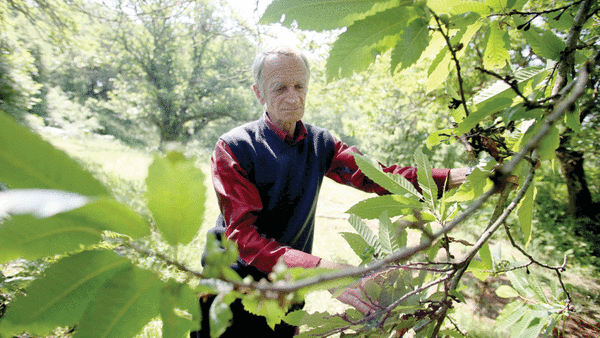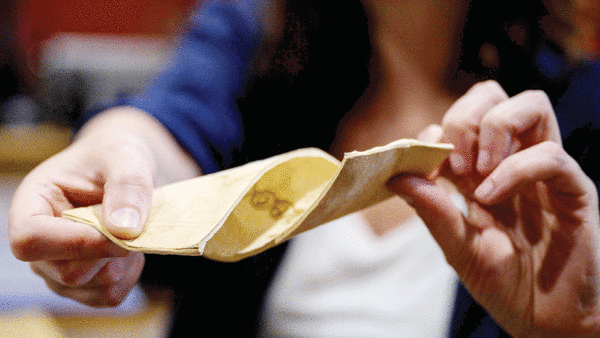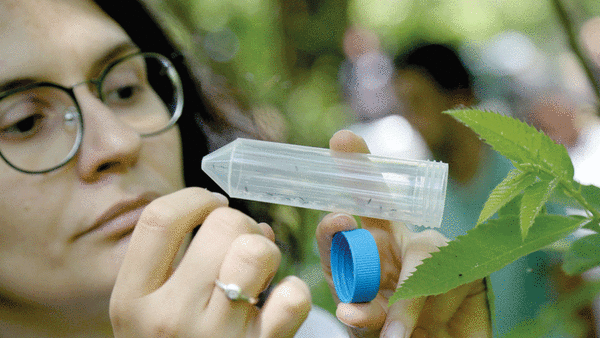

The northern Albanian village of Rec is locked in a life or death battle with a tiny wasp.
Beautiful but impoverished, its villagers have made a living by selling their chestnuts for centuries.
But in the space of just a few years, a tiny invasive wasp, originally from China, has caused havoc, killing its chestnut trees and forcing villagers to pack up and leave.
Already hit hard by the exodus from rural northern Albania since the fall of communism, half of Rec’s 200 families have left since the wasp’s arrival in 2020.
“It’s killing our trees,” said Prek Gjeloshaj, a 64-year-old farmer, pointing to the blight caused by the insect, which inserts its eggs into the tree’s buds and prevents fruiting.
“The damage is everywhere,” he said. “For us, every tree that dies is like the death of a human being.”
Experts say Rec’s chestnut sector has all but collapsed as a result.
“Production, which used to be between 400 and 600 tonnes a year, has fallen by 80 per cent,” said Rexhep Metaj, a 68-year-old agronomist.
Rec has some 500 hectares of chestnut groves which provide between 60 and 70 per cent of its income.
The chestnut gall wasp has laid waste to chestnut trees for decades as it spread across Asia, before arriving in the United States and later Europe in the early 2000s.

Wasp vs wasp
To combat the plague, Albania has turned to the insect’s natural predator — another Chinese wasp — the torymus sinensis.
The authorities have released several thousand of the species in Rec, where they lay their eggs on the larvae of the gall wasp.
“We are determined to defeat the wasps, which have caused a drop in production and even tree mortality,” said Irfan Tarelli, the director general of Albania’s Ministry of Agriculture.
However, experts warn that patience is required, saying the fight between the rival insects will take time. Scientists have cited successful use of the predatory wasp in France and Italy.
The residents of Rec, however, are still waiting for results. “Not only has the disease not been curbed, it has actually gained ground,” complained agronomist Metaj. In another blow to the region, a second infestation of gall wasps has just been detected some 200 kilometres to the northeast in Tropoja near the border with Kosovo, which is also famous for its chestnut honey.
According to Shpend Nikoci, a representative of a local farmers’ association in Tropoja, the parasite will likely cost the sector 6.5 million euros ($7.1 million).

The drops in production are expected to increase, with officials unable to deploy the torymus sinensis wasps until next year.
Experts say they have to respect the life cycle of the wasps for the campaign to succeed.
Scientists have argued that more field studies are needed to find workable solutions for Albania, where 400,000 trees produce between four and six million tonnes of chestnuts annually — with over a quarter exported.
But for forestry engineer Abdulla Diku “biological control is the only way to counter the scourge, control it and ensure the return of the natural balance of chestnut forests.” — AFP
Oman Observer is now on the WhatsApp channel. Click here


